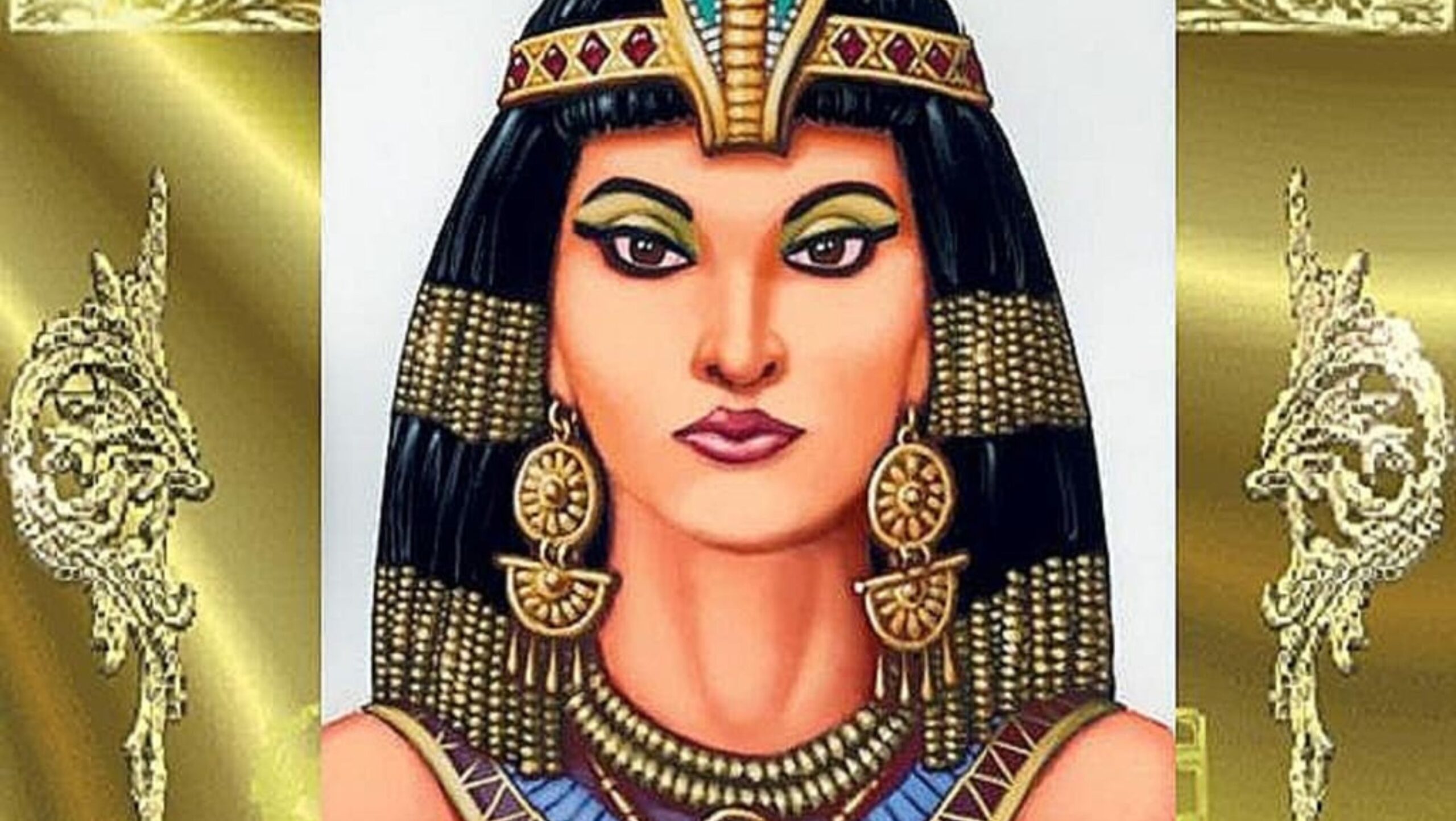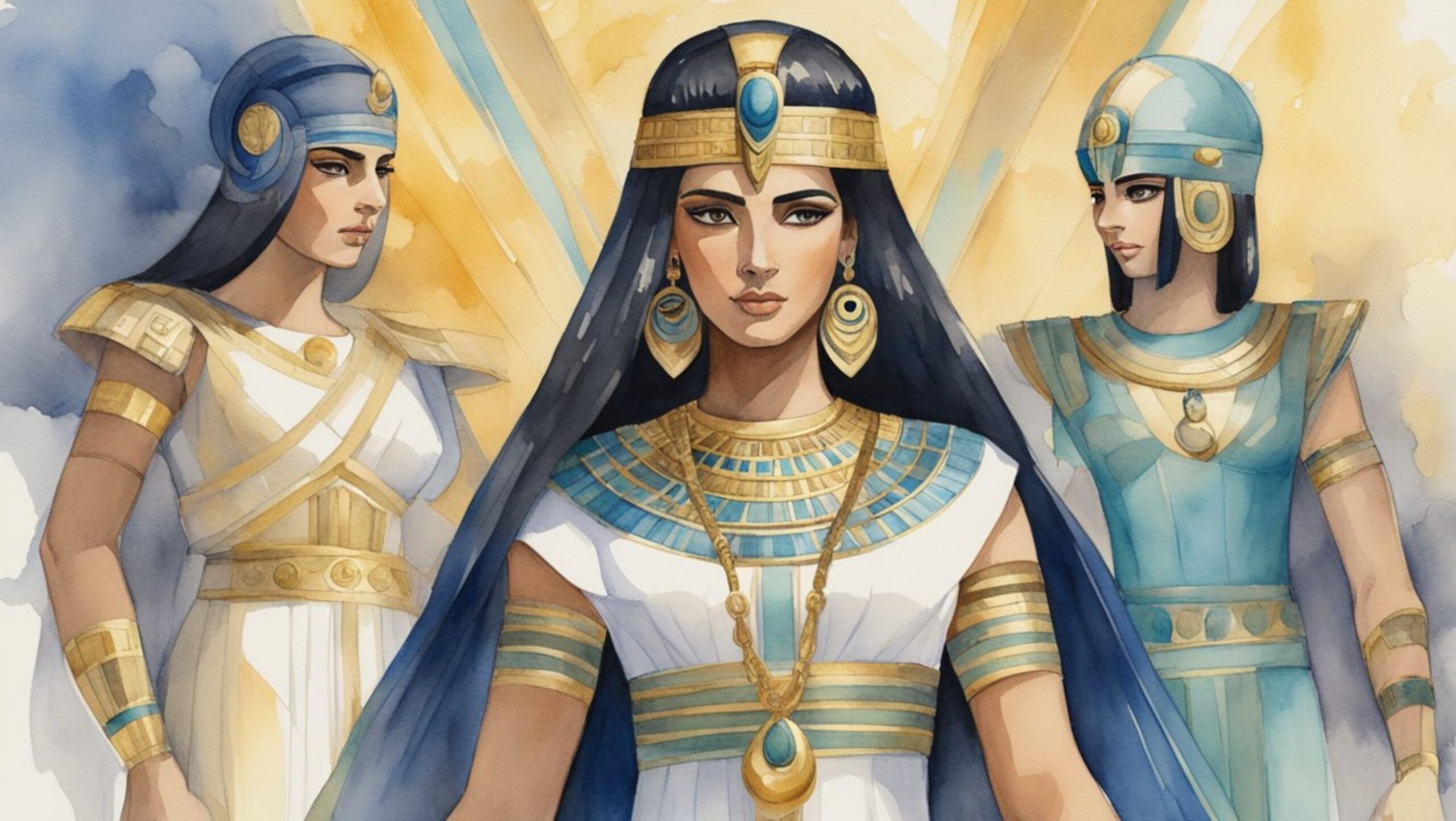Ever caught yourself thinking about how the words we use have actually shaped history? Look no further than Cleopatra, one of antiquity’s most iconic figures. Knowing multiple languages was more than just her party piece; it played a huge role in how she managed to rule Egypt so effectively. The ability to communicate directly with her subjects set her apart from predecessors, making “Cleopatra’s language” not just a matter of historical curiosity but a testament to her strategic brilliance.
Table of Contents:
- Cleopatra VII: The Last Pharaoh of Ancient Egypt
- Cleopatra’s Linguistic Prowess: A Genius Ahead of Her Time
- Uncovering the Mystery of Cleopatra’s Ethnic Background
- Beyond Beauty: Cleopatra’s Intellectual Achievements
- Cleopatra’s Enduring Legacy and Fascination
- Conclusion
Cleopatra VII: The Last Pharaoh of Ancient Egypt

Cleopatra VII, the last active ruler of the Ptolemaic Kingdom of Egypt, is one of history’s most fascinating figures. She’s often remembered for her love affairs with powerful Roman men like Julius Caesar and Mark Antony. Yet, her tale stretches far beyond what we’ve covered so far.
Who Was Cleopatra VII?
Born in 69 BC, Cleopatra was a member of the Ptolemaic dynasty, a family of Macedonian Greek origin that ruled Egypt for nearly 300 years. She became co-ruler at just 18 years old, alongside her younger brother Ptolemy XIII.
The Ptolemaic dynasty was founded by Ptolemy I Soter, a Macedonian Greek general under Alexander the Great. After Alexander’s death in 323 BC, Ptolemy took control of Egypt, establishing a powerful dynasty that would last for centuries.
Cleopatra’s Rise to Power: Cleopatra’s Language
Cleopatra’s early reign was marked by a power struggle with her brother. In 48 BC, Julius Caesar arrived in Egypt and took Cleopatra’s side. With his support, she regained the throne.
As the last active pharaoh of Egypt, Cleopatra worked hard to protect her country’s interests. She formed alliances with powerful Roman leaders and used her charm and intelligence to navigate complex political situations.
The End of an Era
Cleopatra’s reign came to a tragic end in 30 BC. After Mark Antony’s defeat by Octavian (later Emperor Augustus) in the Battle of Actium, Cleopatra took her own life. Her death marked the end of the Ptolemaic dynasty and the beginning of Roman rule in Egypt.
Cleopatra’s Linguistic Prowess: A Genius Ahead of Her Time
Cleopatra was known for her incredible intellect and her mastery of multiple languages. In a time when most rulers relied on translators, Cleopatra could communicate directly with diplomats and subjects from various regions.
In the ancient world, the ability to speak multiple languages was a powerful tool. It allowed leaders like Cleopatra to negotiate directly with foreign diplomats, build alliances, and maintain control over diverse populations.
Cleopatra’s Mastery of Multiple Languages
According to ancient sources, Cleopatra was fluent in at least seven languages, and possibly as many as a dozen. This linguistic prowess was rare among ancient rulers and was a testament to her intelligence and education.
While the exact number is debated, ancient sources suggest that Cleopatra spoke languages including Greek (her native tongue), Egyptian, Ethiopian, Troglodytic, Hebrew, Arabic, Syriac, Median, and Parthian.
How Cleopatra Used Language to Her Advantage: Cleopatra’s Language
Cleopatra’s knack for having heart-to-heart chats not just with her people but also with international big shots played a massive role in cementing her status as an effective leader. She used her language skills to build alliances, negotiate treaties, and maintain loyalty among diverse groups within her kingdom.
Uncovering the Mystery of Cleopatra’s Ethnic Background: Cleopatra’s Language
One of the most intriguing questions about Cleopatra is her ethnic background. While she was undoubtedly a member of the Ptolemaic dynasty, the ethnic origins of her mother remain a topic of debate among historians.
The Ptolemaic dynasty was descended from Ptolemy I Soter, a Macedonian Greek general who served under Alexander the Great. The Ptolemies embraced Greek culture and language, and Alexandria became a center of Hellenistic learning.
The Debate Over Cleopatra’s Mother
While Cleopatra’s father, Ptolemy XII Auletes, was of Macedonian Greek descent, the identity and ethnicity of her mother remain uncertain. Some scholars suggest that her mother may have been Egyptian, while others propose a mixed ethnic background.
Cleopatra’s Mixed Ethnic Heritage: Cleopatra’s Language
Regardless of her mother’s exact origins, it is clear that Cleopatra embraced both her Greek and Egyptian heritage. She was the first Ptolemaic ruler to learn the Egyptian language and participated in traditional Egyptian religious ceremonies.
Beyond Beauty: Cleopatra’s Intellectual Achievements
While Cleopatra is often remembered for her beauty and romantic relationships, her intellectual achievements were equally impressive. She had a soft spot for creativity and knowledge, leading to leaps in progress across different areas during her time on the throne.
Cleopatra soaked up all her knowledge in Alexandria, famous for its massive Library and the Mouseion, a hotspot for scholars. She studied philosophy, science, literature, and politics under the guidance of distinguished scholars.
The Library of Alexandria During Cleopatra’s Reign: Cleopatra’s Language
The famous Library of Alexandria flourished during Cleopatra’s reign. It housed an extensive collection of scrolls and attracted scholars from all over the ancient world. Cleopatra took a keen interest in the Library and supported its growth.
Cleopatra’s Contributions to Medicine and Science
Besides her political savvy, Cleopatra was a big supporter of the sciences and medicine. The famous physician Galen studied at Alexandria during her reign, and ancient sources suggest that Cleopatra herself was involved in scientific experiments and the development of cosmetics and medicines.
Cleopatra’s Enduring Legacy and Fascination: Cleopatra’s Language

More than two millennia after her death, Cleopatra continues to captivate the imagination of people around the world. Her story has been retold countless times in literature, art, and popular culture.
Ancient Roman writers like Plutarch, Suetonius, and Cassius Dio wrote extensively about Cleopatra, although their accounts were often colored by political bias. These ancient sources form the basis of much of what we know about her life and reign.
Cleopatra’s Depiction in Modern Media
Cleopatra has been portrayed in countless works of art, literature, theater, and film. From Shakespeare’s play “Antony and Cleopatra” to Elizabeth Taylor’s iconic portrayal in the 1963 film “Cleopatra,” her story continues to inspire and fascinate.
The Allure of Cleopatra’s Story
Cleopatra’s life story has all the elements of a great drama: power, love, betrayal, and tragedy. Her intelligence, charisma, and political savvy have made her an enduring symbol of female power and influence, captivating audiences across the centuries.
Key Takeaway: Cleopatra’s Language
Cleopatra wasn’t just about her love stories; she was a polyglot genius who used her language skills to steer diplomacy and rule effectively. Her story is way more than romance—it’s about power, intellect, and legacy.
Conclusion: Cleopatra’s Language
In the grand tapestry that is history, few threads are as colorful or as enduring as those concerning Cleopatra. At its heart lies Cleopatra’s language, more than mere words – they were tools she wielded with unparalleled skill. This exploration into the linguistics behind an empire reveals much about political savvy and personal charisma.
Cleopatra harnessed the silent power of communication. And at this journey’s end? We’re left marveling not at myths spun by Hollywood but at genuine ingenuity standing firm against time itself. Let’s check out her beliefs next!

